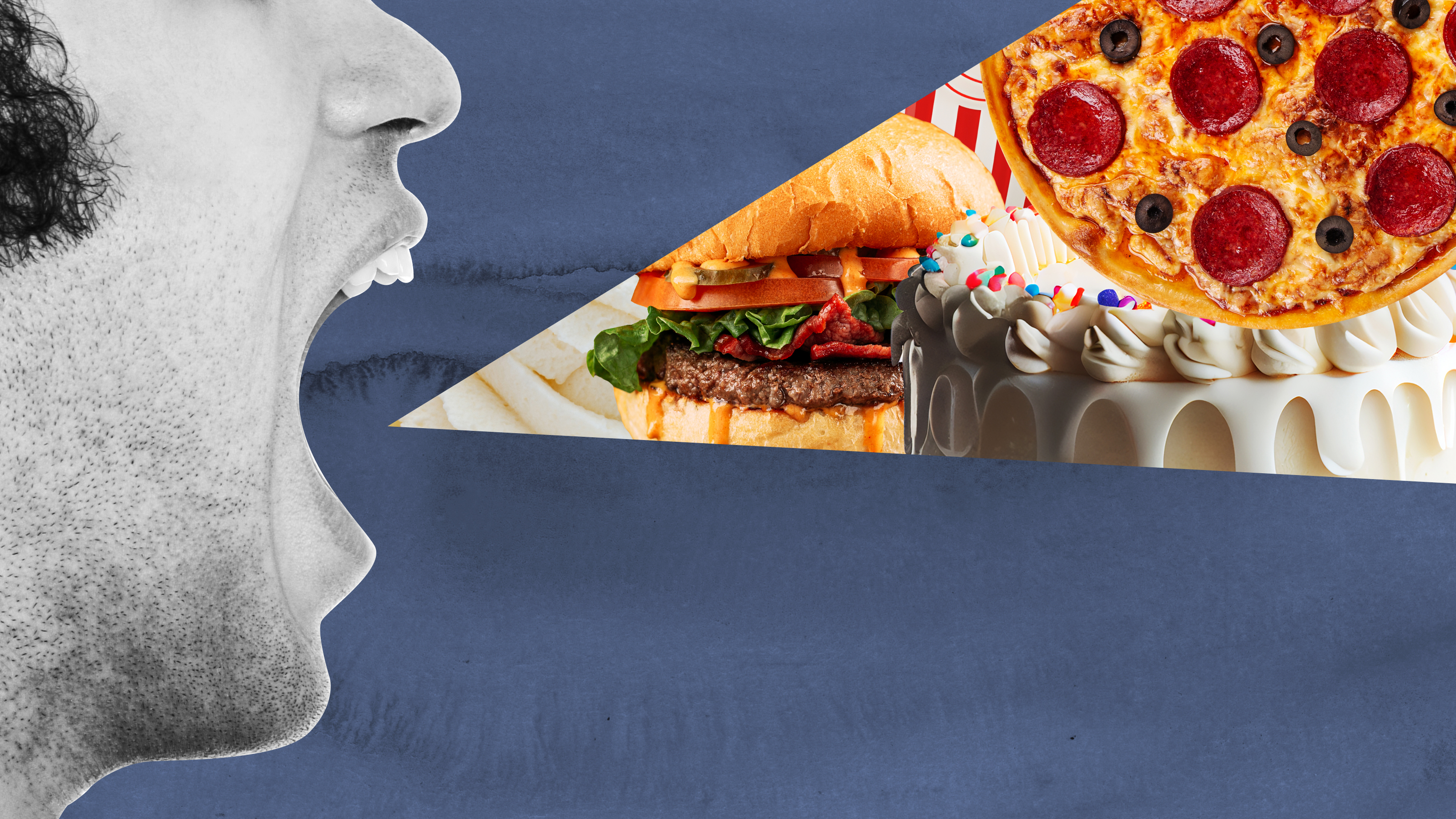This new research will help you make better food decisions

Joe Raedle/Getty Images
On your busiest, most stressed-out days, you may not be thinking much about what ends up on your lunch or dinner plate.
In fact, you may count yourself lucky if your meal didn’t come out of the vending machine at work. But abandoning your healthy eating goals stands in the way of your ability to fully thrive. After all, plenty of research shows that a diet rich in produce offers valuable nutrients not just for your body, but for your mental well-being.
But here’s the irony: If you focus exclusively on the mental and physical health perks — instead of how delicious healthy foods can be — you may have a harder time reaping those benefits, says a new study from Stanford University. “Our culture is used to thinking about how nutritious foods will help our bodies function, look better, or stave off disease, but these aren’t our top priorities when we’re hungry and want something that tastes good,” Brad Turnwald, Ph.D., study co-author and postdoctoral scholar at the Stanford Mind & Body Lab, tells Thrive. This can lead to a mindset that healthy eating is boring and even depriving.
So to really use food to fuel your body and your mind, it may help to try letting your taste buds guide you to delicious dishes that also happen to be nutritious. These expert-approved tips can help:
Start small
Before you jump in and redesign your entire diet in one fell swoop, Vagdevi Meunier, Psy.D., clinical psychologist and master trainer for The Gottman Institute, suggests making one change at a time. At Thrive we refer to these small, incremental changes as Microsteps. So instead of turning down both bread and fries at your next dinner out, Meunier advises starting off by making just one swap, such as trading the fries for roasted cauliflower, but letting yourself have a piece of bread. This will help your mind adjust to the healthy changes instead of retaliating against deprivation mode.
Focus on flavor
Healthy foods have so much more to offer than mere vitamins and nutrients, such as delicious crunch, a colorful feast for the eyes, and, yes — a ton of flavor. Turnwald’s study found that being mindful of these “experiential” elements of eating could help you choose wisely. This could be as simple as topping a salad with some fresh herbs, or keeping a bottle of hot sauce at work to amp up the flavor of an otherwise “boring” plate. These strategies can “help us enjoy eating nutritious foods time and again and feel satisfied when we do because we aren’t in a mindset of restriction,” Turnwald says.
Plan ahead
3 p.m. snackers, take heart: Preparing your indulgences in advance is a research-backed strategy for keeping your cravings in check. In a series of field studies surveying real office environments, researchers from Carnegie Mellon University found that employees who decided on their lunch orders in the morning consumed five percent fewer calories than their colleagues who made their choices in the moment. By planning your lunch or snack time menu ahead of time — and planning something nutritious yet delicious — you’ll get to eat what you want… and your brain will benefit, too.
Reprinted with permission of Thrive Global. Read the original article.





